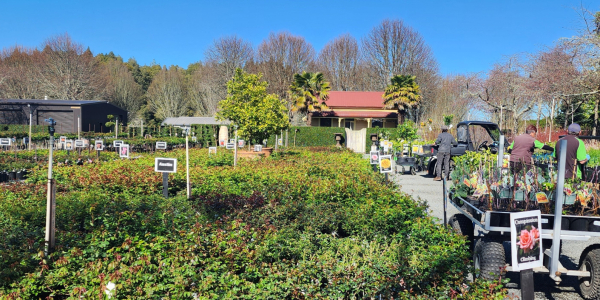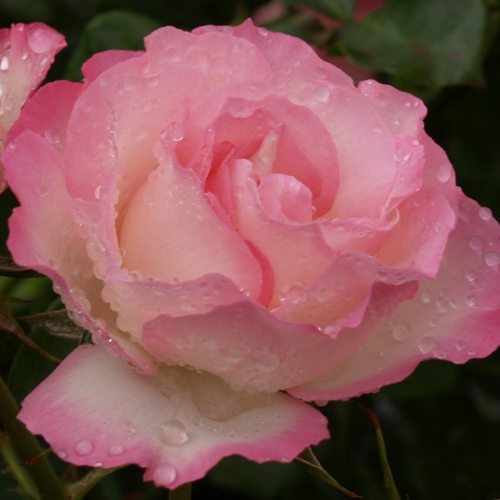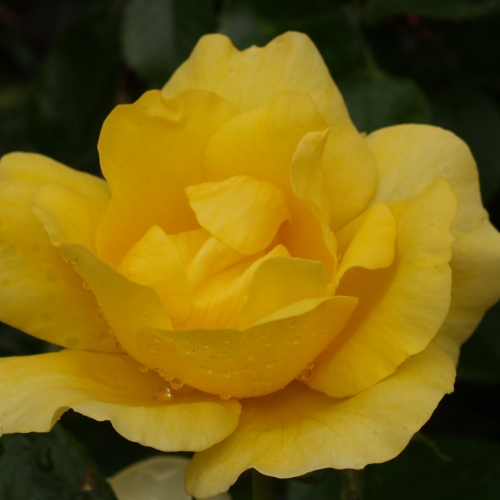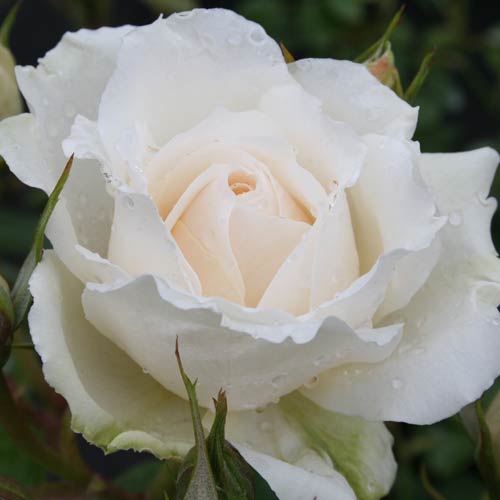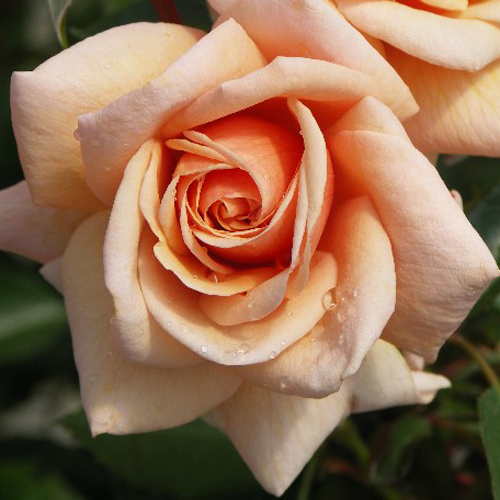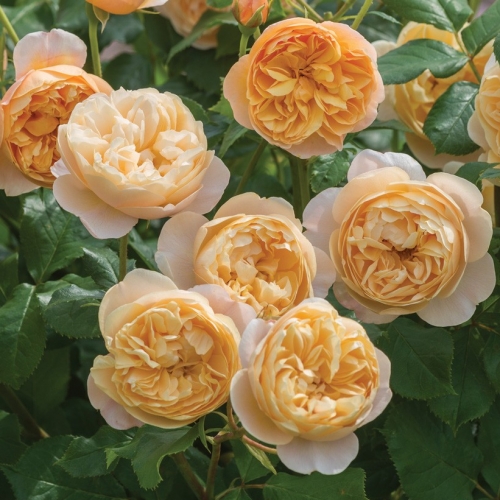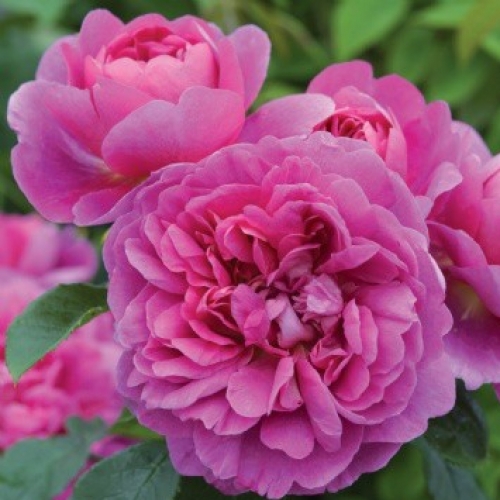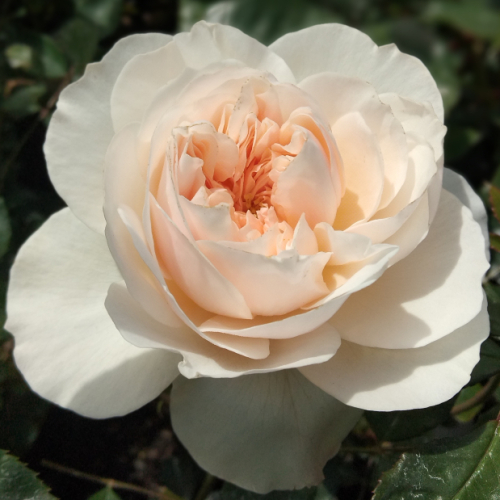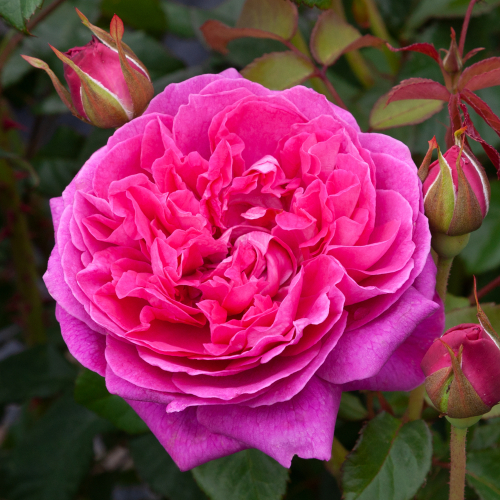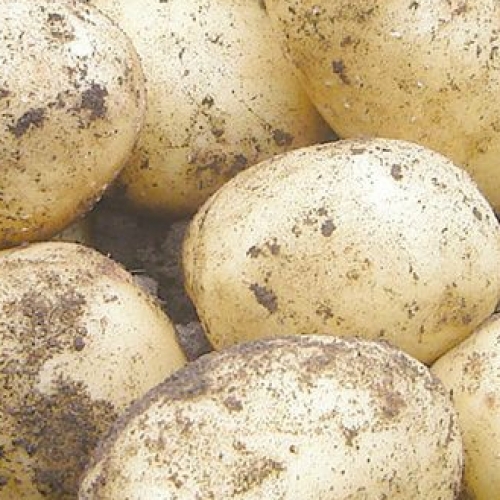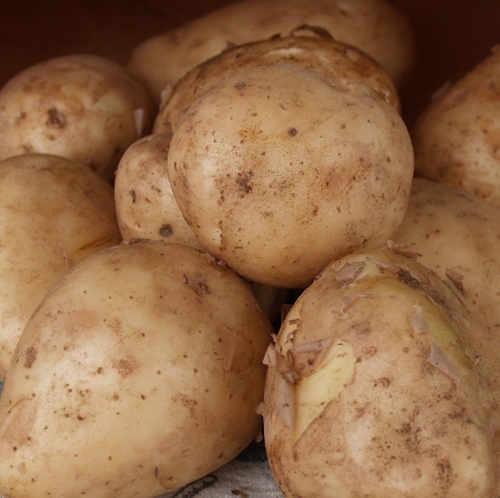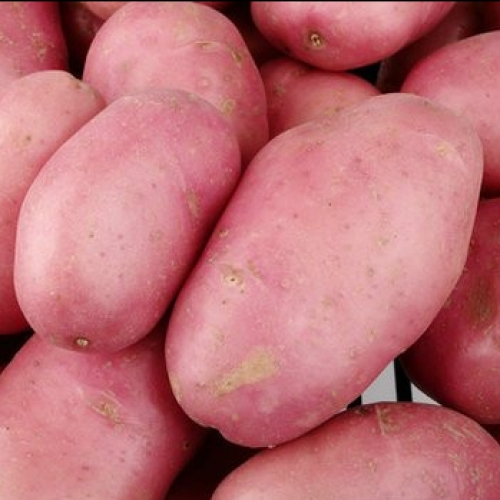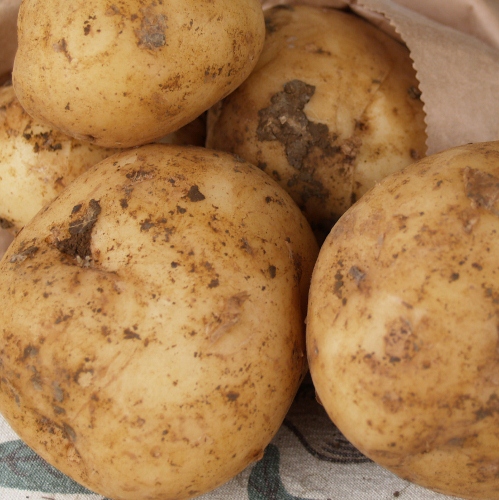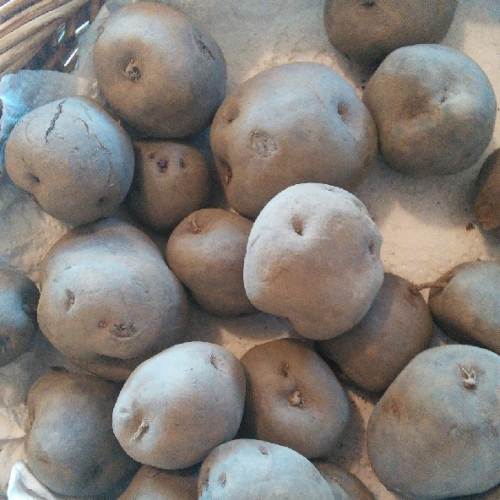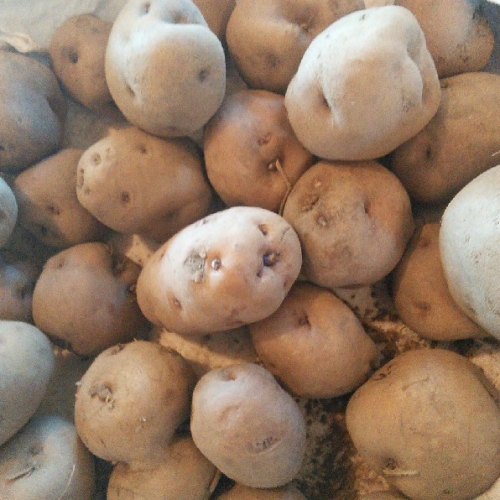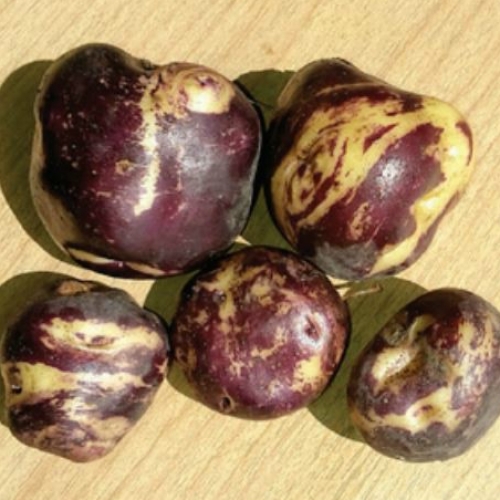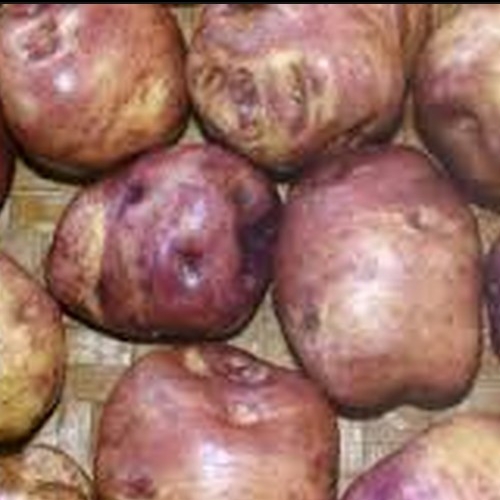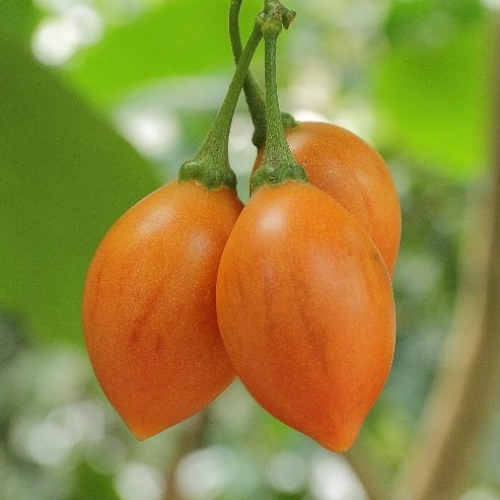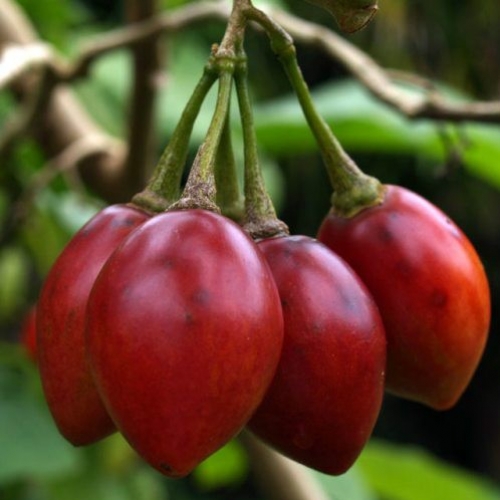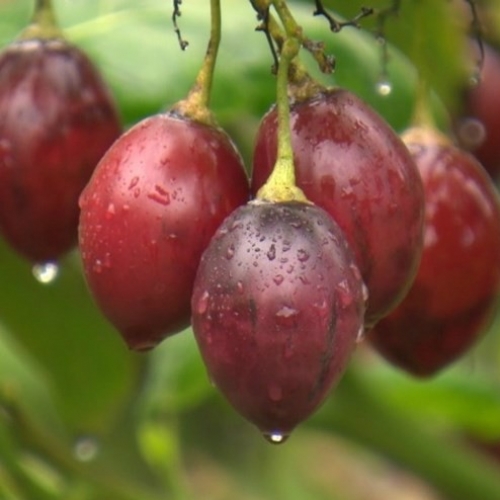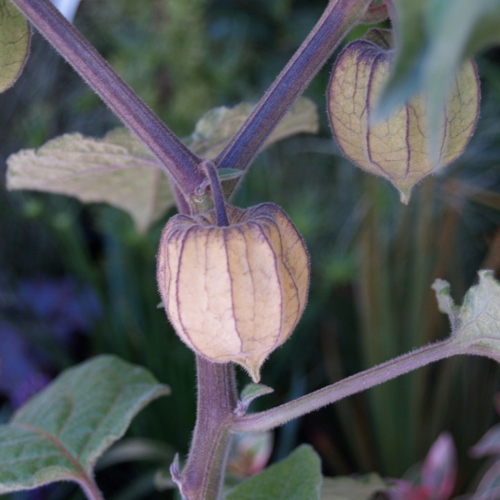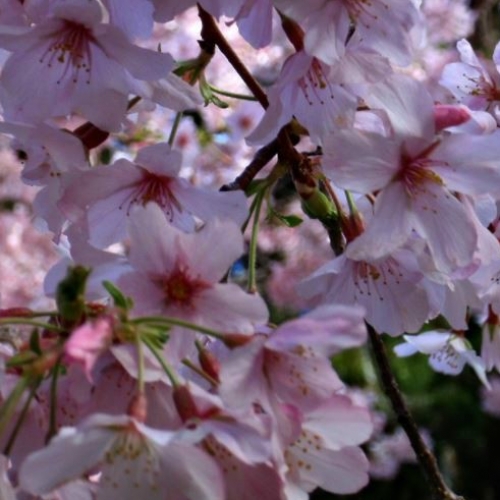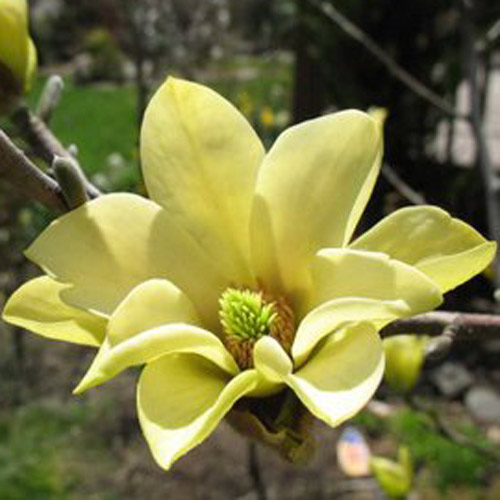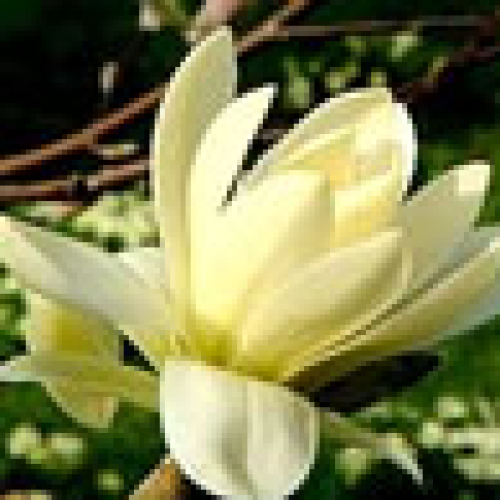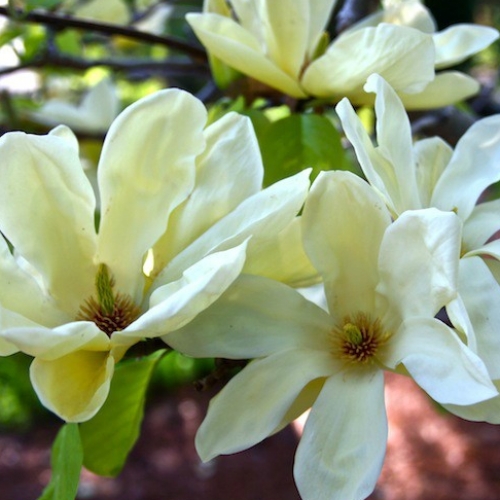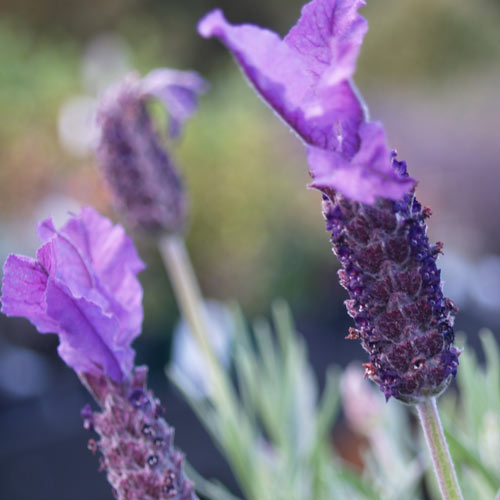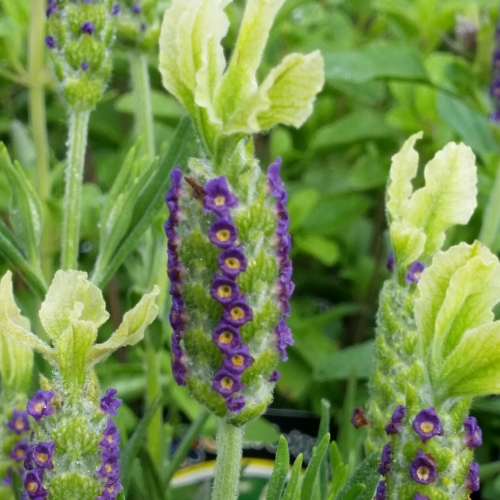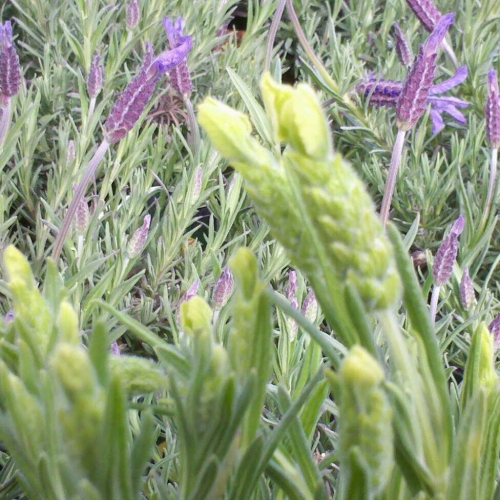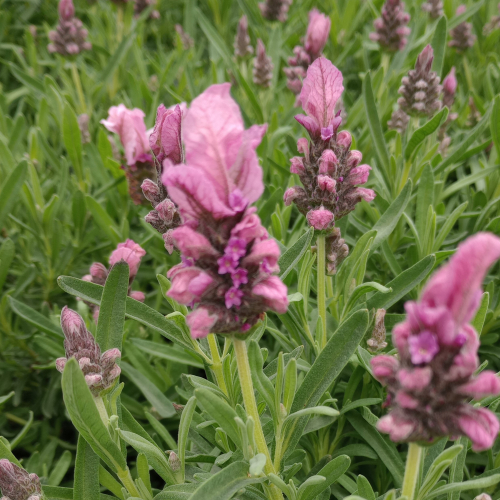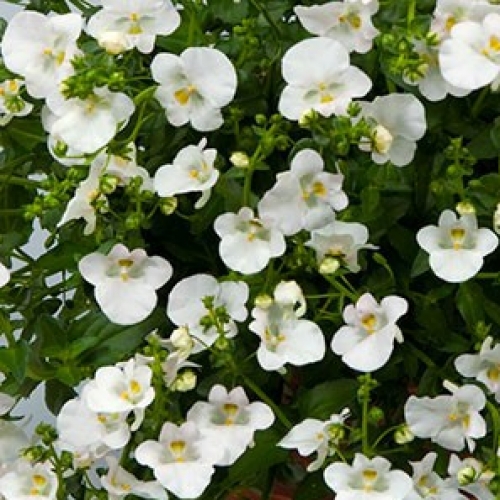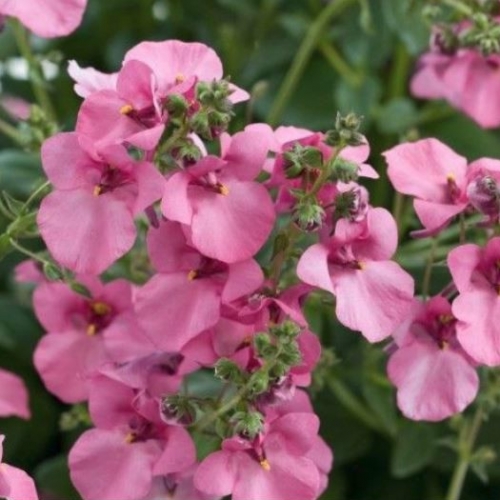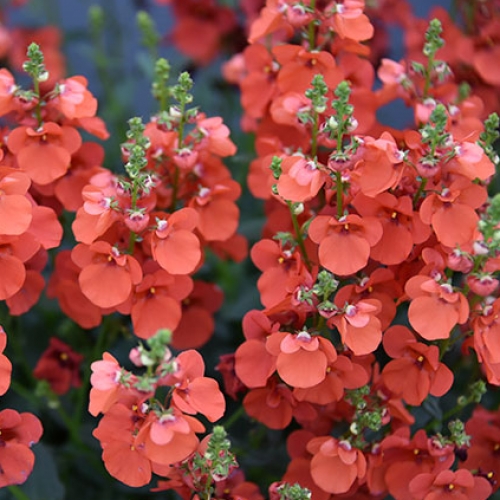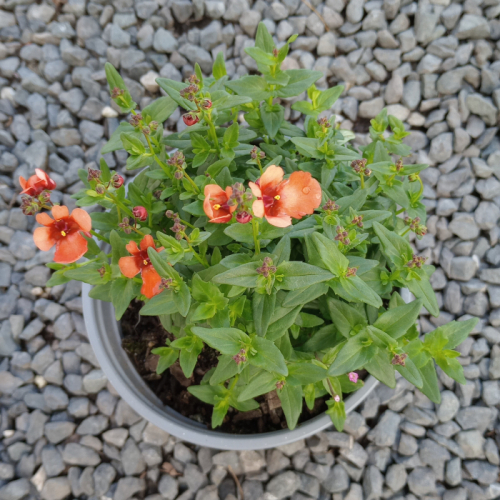Saturday 7th September, 2024
Hi
Sunny days bring on the roses big time
Don't you just love these beautiful sunny days that we have managed to get a few of, of late? Although the thunder/hail shower late Weds afternoon, just as I was about to spray the
roses, was a tad annoying. Thankfully, Thursday morning dawned bright and sunny and I got the job done before we opened for the day. It's good to do this task because you are always looking at the roses and of course all plants, checking them out for space and quality to see what their further needs may be. I have to say that the
roses are currently looking amazing and so if you are looking, then now is a good time, though in a few more weeks they will be starting to flower, which always makes choosing easier.
I have a plan to cut, rather prune, some of the big numbers of our roses back to a few buds up from their winter structure. This will delay them from flowering and they will bloom probably around 6 weeks later than the ones that we don't prune. This means they can go closer together and then the others can get some more room to be more busy plants.
On the note of the roses, I was privileged to have a couple of the south island rose growers come through and visit us and check the nursery and of course our
roses. They couldn't get over how advanced our rose plants were and so I guess and conclude that theirs are weeks behind. I was also flattered to have them comment that our garden centre is immaculate and they were amazed at how how tidy it all is. I also think that they had dispatch-shed-envy as they cast their eyes over the inside of our new dispatch shed space and all its operations and especially over all the custom made cartons for our courier service.
Of course when you chat to fellow rose growers they tell you what their favourites are and because they produce them in the field they have quite a bit of performance knowledge. Here are a few from our conversation starting with
Princess Anne, being one that we both concurred is a great performer!
Princess Anne has a unique character and a very special beauty. The young flower is deep pink, almost red, gradually fading to a pure deep pink as the bloom matures. The undersides of the petals have a pleasing hint of yellow. The petals are rather narrow and unusually substantial.
James L Austin was another one of the newer cultivars that they suggested as a great rose.
James L Austin bears large, many petalled, deep pink rosettes, each with a button eye. There is a light-medium strength fruity fragrance. It forms a neat and tidy shrub with a bushy, upright habit.
Lichfield Angel. This angel of a rose has clouds of soft creamy apricot blooms that gently fade to white. A beautiful rose that blooms generously and has a vigorous, disease resistant, informal, growth habit. Named for an artefact recently discovered at Lichfield Cathedral.
Roald Dahl has soft orange-red buds open to medium-sized, cupped rosettes of perfect apricot colouring. They are extremely robust and have a lovely fruity tea scent. Very healthy all round attractive compact bush. Few thorns.
These are of course just a few of the newer cultivars but they are all mostly good performers and find favour with those that love that old fashioned style of bloom and scented roses. Click the
link and check all the
Austin roses out.
It's all go with heaps of spring stock arriving daily and the team getting it all away.. We will be brim full in no time... the best time of year in a garden centre
The solanums ... who don't like the cold
It's interesting but the plant family Solanaceae has many different species that I really don't like and one that is my particular bug bear at the moment is the weed woolly nightshade (Solanum mauritianum). It just seems to be popping up and even colonizing everywhere that I look these days and it's not at all attractive-looking. I do wonder if it's becoming so prolific due to our warmer temperatures and quite regular rainfall and because the birds are pretty proficient at dispersing its berries. There are quite a few other pest species like deadly or Black nightshade (Solanum nigrum) and Jerusalem berry (Solanum pseudocapsicum) that I also wage war upon, and as you will guess, these belong to the same family.
Having just written all of that there are plenty of species in the solanum genus that we perhaps take for granted and a couple of food staples would have to be Solanum tuberosum and Solanum lycopersicum... Hope you guessed spuds and tomatoes.I know that the real spud enthusiasts will have sprouted their seed tatties already and have the trenches prepared but dare I say that spring is here and frosts are past? It's time to get going and so Ang topped our seed potatoes up for those that are ready to plant now. I have suggested a few, but again follow the link to see them all.
The potatoes listed below are for your main crop. If you want early varieties that will mature soon, then try Swift and Rocket. Jersey Bennes takes a little longer, but are still relatively early to ripen
Agria. A top 'spud' with large oval tubers, creamy skin and yellow flesh. Suitable for boiling, mashing, baking and makes the best chips. A high yielding floury potato that keeps well. Matures in approximately 90-100 days.
Desiree. Matures in approximately 90-100 days. Round tubers with pink skin and creamy flesh. Good for all general cooking, lovely oven baked. Holds together well in the micro-wave. Nice flavour.
Ilam Hardy. Oval to round tubers with white skin and white flesh. Good all purpose potato with a floury texture. A firm favourite with many. Matures in approximately 90-100 days.
Maori potatoes are great to grow and are attractive with their purple shades. Imagine a roast pan full of coloured potatoes
Waiporoporo. Great medium sized boiling potato, lovely tasting. Have a light purple mottled skin and a firm smooth creamy flesh. Mature in approximately 110 days. Tubers are oval or round.
Moemoe. Ideal for boiling and baking. Try mashed with butter, pepper and lots of parsley! Mature around 120-130 days. Tuber round oval, skin light purple and cream, Flesh is cream.
Karuparera. Round tubers with dark purple skin and white eyes. Cream flesh which is ideal for salads and boiling.
Tamarillos and Cape gooseberries
For those that don't know,
Tree tomatoes or Tamarillos also belong to the Solanaceae family being Solanum betaceum. These small trees grow to 2 to 3 metres but again are not fond of the cold or frosts. I know many grow them here in microclimate areas so that they get a crop of this delicious fruit.
We currently have in stock
Bold Gold,
Lairds Large Red and Mulligan.
Bold gold fruit are golden in colour but the latter two are both red. It's a good time to get these in now, so they have a long growing season before next winter, but you will have to watch out for any late frosts.
Cape gooseberry or Physalis peruviana is quite a cool sprawling plant that has these tasty yellow fruit that are encapsulated inside papery lanterns. These can be eaten as a berry or you can cook them into jam etc. Again planting from now on will give you a long season but watch for late frosts... not so different from potatoes or most members of the Solanaceae family.
Coming into flower right now or from now on
Prunus Awanui. Raised in NZ, 'Awanui' is a little different from other flowering cherries in that the horizontal branches drape softly almost to ground level. The prolific spring blooms are softest baby pink and single. A tree in full blossom is extremely pretty. Definitely a must have.
The yellow Mags seem to be after all the pink magnolias
Magnolia Butterflies is a truly beautiful Magnolia with soft yellow fragrant blooms that, when fully open, dance on the branches like giant butterflies. Flowers appear from late winter until early spring.
Magnolia Gold star is a good small tree with quite a wide growth habit. The juvenile spring foliage is an attractive bronze shade. The flowers are a pale yellow with a shaggy star shape. Great for smaller landscape designs.
Magnolia sundance. An unusual Magnolia with elegant, tulip shaped, soft yellow blooms that are lightly perfumed. Quite a vigorous grower that establishes itself quickly. Certainly becoming a favourite for Magnolia lovers.
Just arrived
Spanish lavender, that's the one with the cute frilly wings (bracts) at the top of the inflorescences that look like bunny ears, has just been added to the nursery and we have a good range of flower colours. Spanish lavender varieties tend to flower earlier in NZ than the
English lavender varieties, which is why we have them in stock first.
Lavender major is one of the most popular lavenders sold in NZ and there's a good reason for that. The plump purple flower heads appear in abundance from early spring through to late summer. It performs well and looks good clipped.
Lavender Lemon Leigh and
Pat Leigh both have that little something extra. Lemon Leigh has an aromatic lemon scent and large yellow-green flowers while Pat Leigh is a striking variety bred in Nelson with purple flowers topped with pale, lemon-yellow bunny ears. Most unusual!
We also have three varieties in the Lavish series:
Lavish Blue,
Lavish Purple and
Lavish Rose. These all have lots of frilly wings that aren't limited to the tip of the inflorescence, but go all the way down the sides. They are drought tolerant and loved by bees. Get in fast, as we don't have many of these.
If you are looking for something easy to grow with lots of pretty flowers that would be suitable as a groundcover, or for a planter or hanging basket, then how about
Diascias? We have 7 varieties of this pretty little plant from southern Africa, with flowers of white (
Diascia Genta White), pink (e.g.
Genta Pink), orange (e.g.
Trinity Sunset) and red (
Genta Ruby). They flower from early Spring and through the Summer.
It's a whole heap warmer and the days are suddenly so much longer that the thought of daylight saving crossed my mind, and so a quick google and in roughly three weeks time we will all put our clocks forward. I know that I say it all the time, but the year goes so fast and in Spring for nursery people it just sprints past.
In the nursery garden we have been making changes and that means getting the position ready and trying to get as much planting done as possible so that it establishes before the summer. We also compost quite a percentage of our own waste and so that has been going back onto the gardens too. It's an exciting time of year and there is always going to be heaps to do.
Have a great weekend.
Cheers from Lloyd, Tony and the Wairere team.
